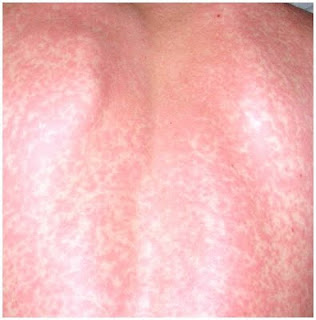Vit B12 is vital for the normal functioning of the nervous system and in the production of other B complex vitamins. It is essential for the fatty acid metabolism for energy production and DNA synthesis.
Bio-synthesis and vitamin B12 production is carried on by gut bacteria. Very insignificant amount of vit B12 is synthesised by human gut bacteria.
The gut bacteria of the herbivores synthesise great quantities of this vit B12 and excess vit B12 production is stored in their liver and red tissues.
Causes of vitamin B12 (cyanocobalamin) deficiency
Deficiency of vit B12 occurs either due to insufficient intake or poor absorption, as usually the cause in elderly persons.
Certain intestinal disorders like chronic atrophic gastritis, wherein absorption of food is impaired, can cause vit B12 deficiency.
As vitamin B12 naturally occurs in animal products like egg, meat and milk, the vegans who renounce the above vit B12 rich foods can develop severe deficiency of cyanocobalamin unless they take supplements.
Persons with severe infestation of intestinal parasites and worms will suffer deficiency of vit B12 as the parasites will compete with the host for the available vit B12.
In alcoholics symptoms and effects of vit B12 deficiency are pronounced due poor nutritional habits and the interference of alcohol in the absorption and utilisation of vit B12.
Vitamin B12 deficiency causes
The deficiency vit B12 (cyanocobalamin) can lead to Megaloblastic anemia wherein blood corpuscles are enlarged.
The deficiency of this vitamin can cause severe and irreversible damage of the brain and nervous system.
In slight vitamin B12 deficiency symptoms like depression, dementia and fatigue may be experienced.
Vit B12 deficiency in its severity has been found to cause symptoms like mania and psychosis.
Early symptoms of vitamin B12 deficiency are itching or pain in tongue, white spots on the skin due to lack of melanin in the area.
Symptoms also include sharp and tingling pain on the hand or wrist, sores on the corners of the mouth and nerve shock in the side of the body.
Vit B12 deficiency symptoms also show as breathlessness, twitching of the eye, memory loss and disorientation, migraine headaches and suicidal tendencies.
Vitamin B12 deficiency symptoms and changes become irreversible over a length of time and may not be corrected even with supplements.
Vitamin B12 benefits for skin care and skin health
Vitamin B12 is very essential for sensitivity and skin's sensory functions. Deficiency of vitamin B12, by damaging the nerves, causes sensitivity, numbness and loss of sensation on parts of skin.
Vitamin B12 has some effect over the production and deposition of melanin pigment on the skin.
Vitamin B12 deficiency causes white spots on the skin.
These vit B12 deficiency white spots on skin, lack melanin and occur anywhere on the body. These vit B12 deficiency caused white spots may be itchy, often occurring on the outside of the forearm.
These B12 deficiency white spots may grow white hair.
If vit B12 supplement is not given to correct the deficiency, these vitamin B12 deficiency white spots will get whiter and skin may be itching.
With the passage of time these vit B12 white spots will become very dry and flaky and red/pink raw spots of lower layers of skin will get exposed. These white/pink/red spots will get infected and itching and other symptoms of skin diseases and dermatitis set in.

A person afflicted by itching gets relief and benefits from cyanocobalamin food supplements.
Symptoms like sores at the corners of the mouth, occasionally extending along the edge of the lip reveal the presence of cyanocobalamin deficiency.
Sometimes symptoms like darkness or paleness in skin color due to vit b12 (cyanocobalamin) deficiency is encountered caused by reduced circulation and lack of nutrients to the skin.
Vitamin B12 (cyanocobalamin) Toxicity
Toxicity of vitamin B12 may occur in very high doses and dermatitis and stomach irritation are main symptoms.
In some cases when used along with antibiotics side effects have been encountered with varied symptoms. Hence cautious observation should be made.
High doses of vitamin B12 may mask the symptoms of deficiency of vitamin B9 (folic acid).
Food Sources of vitamin B12 (cyanocobalamin)
Good vit B12 foods are meat, liver, shellfish, milk and eggs. A very high value vit B12 food is liver.
Plants do not supply the vitamin. Vegetarians who do not take even eggs have to take supplements with their food to ward off deficiency.
Recommended dietary daily allowances of vitamin B12 (cyanocobalamin) are as follows:
Infants and children
one year to 3 years: O.9 micrograms
4 years to 8 years: 1.2 micrograms
9 years to 13 years: 1.8 micrograms
Teenagers and adults
14 years to 18 years: males 2.4 micrograms; females 2.6 micrograms
Above 19 years: males 2.4 micrograms; females 2.6 micrograms
Pregnant women: 2.8 micrograms
Lactating mothers: 2.8 micrograms
For related information on skin inflammation (dermatitis), white spots and skin sensitivity read the following posts.
- Vitamin B6 ( pyridoxine, Pyridoxal phosphate, pyridoxamine) deficiency can cause skin inflammation (dermatitis)
- Folic acid (vitamin B9) deficiency causes dermatitis( skin inflammation)
- Vitamin b1 deficiency causes skin sensitivity
For further information please visit http://www.thedynamicnature.com/vitamins/vitamin%20B12.html.



